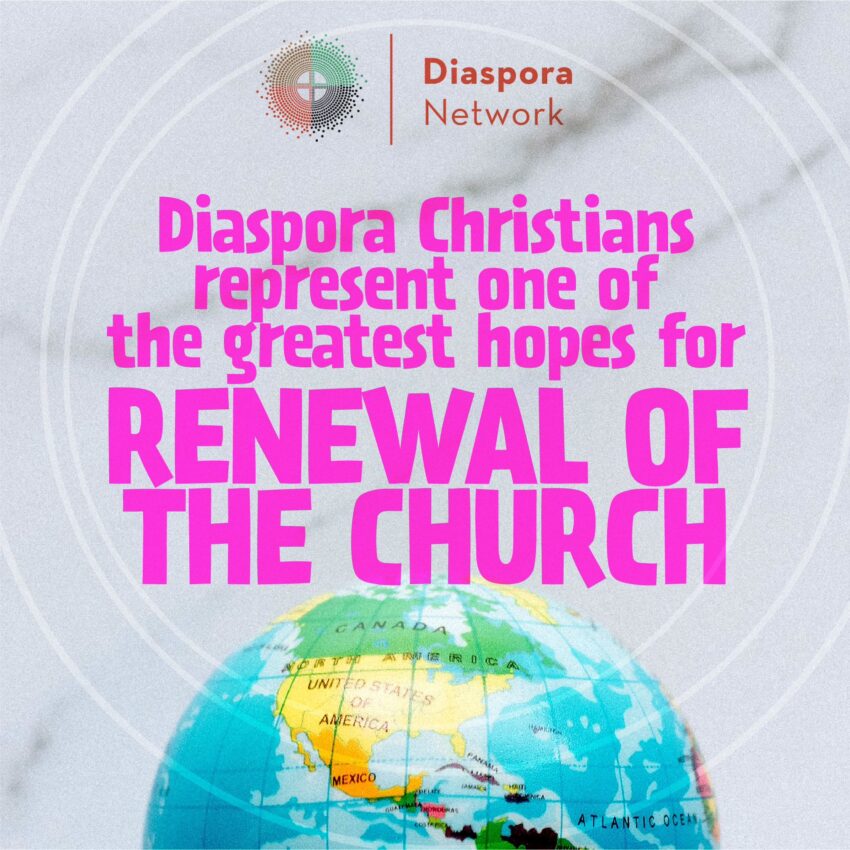One of my intentions for this space is to raise awareness about the growing presence of the immigrant/diaspora church in our North American communities. But more than that, I will advocate for intentional ministry partnerships with our spiritual siblings from the vibrant Majority World church in Africa, Asia, and Latin America.
For a variety of factors, the massive trend of global human migration is unlikely to be reversed. Even another COVID pandemic will only slow it down temporarily. Diaspora missiologist and director of the Global Diaspora Institute at Wheaton College, Sam George, says migration has become one of the defining global issues of the twenty-first century and is also one of the major themes of the Bible”.
In Beyond Hospitality: Migration, Multiculturalism, and the Church, Charles Cook points out that the Bible is essentially “a literary tapestry woven from the stories of migrants.” Indeed, the most significant turning points in the history of Christianity are marked by enormous displacements of people. Once on the move, they have repeatedly reshaped Christianity itself. British historian and missiologist Andrew Walls claimed that migration has proven to be “a more significant event in Christian history than the Protestant Reformation itself.” Even the early Reformers, like John Calvin, made major contributions to advancing Christian thought and influence while living as displaced foreigners outside their homeland. Indeed, the USA owes much of our biblical worldview as well as ethical, educational, and economic progress to the influence of 17th-century Puritan immigrants from England.
For now, I only want to emphasize that the missional implications of global migration to our local communities are significant. Since God is sovereign in the movement of people (Acts 17:26), and since Jesus prayed that his disciples “would be one” and “brought to complete unity” (John 17:21,23), and since we’ll be together in heaven as a great multitude from every nation, tribe, and language (Rev 7:9), I feel safe in stating it is also God’s will for the church to embrace this reality as a kairos moment in human history. Yet, I’m not naive. I know it is easier said than done. However, “nothing is impossible with God” (Luke 1:27).

